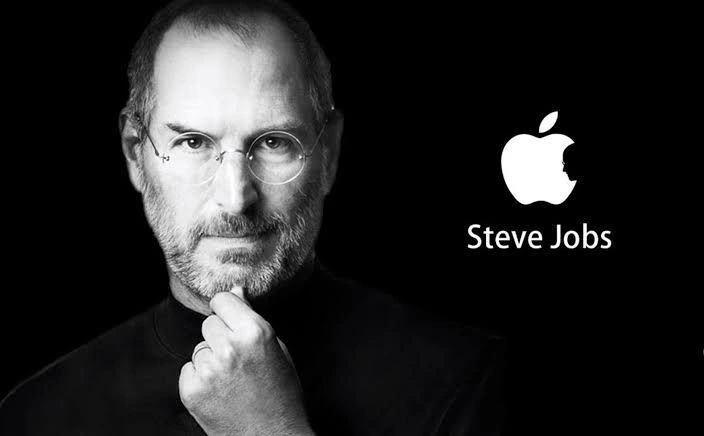“It turned out that getting fired from Apple was the best thing that could have ever happened to me” Steve Jobs.
Forty years ago, in 1985, Apple’s board of directors made a move that shocked Silicon Valley: they fired Steve Jobs, the co-founder and creative force behind the company. What followed became one of the greatest comeback stories in corporate history, one that not only transformed Apple into a global tech powerhouse but also reshaped the entire digital world.
Vision Without Experience
Steve Jobs and Steve Wozniak famously started Apple in a garage, launching a revolution in personal computing. Jobs, the visionary, and Wozniak, the engineering genius, made a formidable team. But as the company grew, it became clear that neither founder had the business experience needed to scale a global enterprise.
To guide Apple’s expansion, Jobs and the board recruited experienced executives, culminating in the hiring of John Sculley, the CEO of PepsiCo, in 1983. It was Jobs himself who persuaded Sculley to join, with his now-famous pitch: “Do you want to spend the rest of your life selling sugared water, or do you want a chance to change the world?”
What Jobs didn’t anticipate was that Sculley would become the instrument of his ouster just two years later.
Creativity Meets Corporate Control
By 1985, Apple’s Macintosh division, led by Jobs, had launched its first products, the Lisa and the Macintosh, but sales were disappointing. Jobs’s intense and often abrasive management style created friction within the company, particularly with Sculley. The former Pepsi executive, trained in corporate structure and management processes, clashed with Jobs’ chaotic and perfectionist approach.
When the Macintosh underperformed and Jobs attempted to sideline Sculley in a boardroom power play, the board responded by backing the CEO. Jobs was demoted and eventually resigned, pushed into a symbolic role that stripped him of influence.
Jobs was 30 years old and out of the company he had created.
From Humbling Failure to Creative Rebirth
After leaving Apple, Jobs founded NeXT, a high-end computer company. Initially, his worst tendencies, perfectionism, obsession with detail, and an aversion to compromise resurfaced. NeXT’s hardware floundered, its innovations far ahead of their time but not commercially viable. Eventually, the company pivoted to software, a decision that would later become pivotal for Apple’s future.
Jobs also became the CEO of Pixar, where he took a more hands-off leadership style. Pixar’s creative team flourished under this model, and the studio produced global hits like Toy Story, A Bug’s Life, and Monsters, Inc. Jobs had matured, learning to support talent instead of micromanaging it.
This period of personal and professional growth proved essential.
NeXT Reunites Jobs with Apple
In 1996, Apple, then in deep financial trouble, acquired NeXT for $429 million. With the acquisition came Jobs. Within a year, CEO Gil Amelio was out, and Jobs was back in charge.
He returned a changed man. More focused, more strategic, and still visionary, Jobs revitalized Apple. The NeXT software became the foundation of macOS, and a parade of iconic products followed: the iMac, iPod, iTunes, iPhone, and iPad. Apple didn’t just recover, it redefined the tech landscape.
Governance, Growth, and Grace
Jobs’ firing from Apple is now seen less as a failure and more as a catalyst. Even John Sculley would later acknowledge Jobs’ brilliance, calling him “the greatest CEO ever” and admitting he was too inexperienced at the time to recognize what Apple truly needed.
Apple’s board acted to stabilize the company in the short term, but at the cost of losing its most creative force. In hindsight, the company might have benefited from finding ways to support both Sculley’s structure and Jobs’ innovation, rather than forcing a binary choice.
This episode offers a timeless lesson in corporate governance. Boards must manage conflict, navigate personality clashes, and prioritize the long-term success of the organization. Proper training, balanced leadership, and strategic foresight are critical. The board’s loyalty must lie with the vision of the company, not any one executive.
Sometimes, Failure Sets You Free
In his 2005 Stanford commencement address, Jobs reflected:
“The heaviness of being successful was replaced by the lightness of being a beginner again… It freed me to enter one of the most creative periods of my life.”
His firing gave him space to grow. And when he returned, he didn’t just rebuild Apple, he reinvented it. Jobs’ journey is proof that setbacks, when embraced, can lead to even greater breakthroughs.
Forty years later, we remember the moment Apple let go of its co-founder, and how that loss ultimately made everything better.


